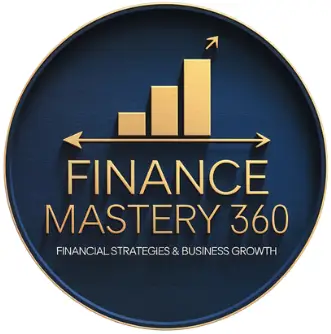As we approach 2025, the fintech landscape continues to evolve at a breakneck pace. Innovative startups are reshaping the financial services industry, leveraging cutting-edge technologies to address longstanding challenges and create new opportunities. With my background in financial management and digital transformation, I’ve closely monitored these emerging players. In this article, we’ll explore the most promising fintech startups poised to make waves in 2025, examining their unique offerings and the trends they represent.
Emerging fintech stars: A global startup heat map
The fintech sector is witnessing unprecedented growth, with startups from various corners of the globe making their mark. In 2023, global fintech investment reached a staggering $131.5 billion, highlighting the sector’s resilience and potential. As we look ahead to 2025, several companies stand out for their innovative approaches and disruptive potential:
Perplexity leads the pack as an AI-powered search engine, revolutionizing how we access and process financial information. Following closely is Ramp, a financial management platform that’s streamlining corporate spending and expense tracking. These frontrunners exemplify the increasing integration of artificial intelligence and machine learning in fintech solutions.
Other noteworthy contenders include:
- Fynhaus: Specializing in RegTech solutions for anti-money laundering and compliance
- Peratera: Focusing on cross-border payments and digital banking
- JustiFi: Pioneering embedded finance infrastructure
- Redefine: Offering DeFi risk assessment for institutional funds
These startups are not just creating waves; they’re reshaping entire segments of the financial industry. Their success underscores the growing demand for innovative financial solutions that prioritize efficiency, security, and user experience.
Innovative solutions transforming financial services
The fintech startups to watch in 2025 are distinguished by their ability to address critical pain points in the financial sector. Drawing from my experience in strategic financial planning, I’ve observed that these companies are not just incremental improvers but true game-changers.
Monnai stands out with its data-driven consumer insights platform, enabling financial institutions to make more informed decisions. Meanwhile, Incard is tailoring its financial platform specifically for e-commerce entrepreneurs and influencers, recognizing the unique needs of this growing demographic.
Other innovative solutions include:
- Finxone: A no-code platform for building fintech apps, democratizing financial innovation
- Coinlink: A DeFi social investment platform, blending finance with community engagement
- Lopeer: Offering hybrid neobanking solutions, bridging traditional and digital banking
These startups are not just creating new products; they’re reimagining entire processes within the financial ecosystem. Their approaches reflect key trends such as decentralized finance, embedded finance, and financial inclusivity.

Technological trends shaping the fintech landscape
As we look towards 2025, several technological trends are emerging as key drivers of innovation in the fintech space. Based on my analysis of market dynamics and digital transformation strategies, I’ve identified the following trends as particularly significant:
| Trend | Impact | Example Startup |
|---|---|---|
| AI and Machine Learning | Enhanced risk assessment and personalized services | Finory.tech |
| Regulatory Technology (RegTech) | Streamlined compliance and reduced operational costs | OMNIO |
| Banking-as-a-Service (BaaS) | Increased financial inclusion and innovative banking models | Synctera |
| Decentralized Finance (DeFi) | New investment opportunities and financial democratization | Redefine |
These trends are not isolated; they often intersect and amplify each other’s impact. For instance, TransactionLink combines RegTech with AI to create a powerful financial orchestration platform for KYC/KYB processes. Similarly, Zabit leverages advanced algorithms to combat money laundering, showcasing the potential of AI in regulatory compliance.
The integration of these technologies is creating a more efficient, secure, and inclusive financial ecosystem. As we move closer to 2025, we can expect these trends to mature and potentially converge, leading to even more groundbreaking innovations in the fintech space.
The future of finance: Collaboration and sustainability
Looking ahead to 2025, the fintech landscape is poised for significant shifts that will reshape the financial services industry. Two key themes are emerging as central to this transformation: collaboration and sustainability.
Increased collaboration between traditional financial institutions and fintech startups is becoming the norm rather than the exception. This symbiotic relationship allows established banks to leverage innovative technologies while providing startups with access to a broader customer base and regulatory expertise. For example, Synctera‘s Banking-as-a-Service platform exemplifies this trend, enabling seamless integration between banks and fintech companies.
Sustainability is another crucial focus, with a growing emphasis on green finance and ethical investing. Startups like GajiGesa are leading the charge by developing financial wellness platforms that not only improve individual financial health but also contribute to broader social sustainability goals.
Other key developments to watch include:
- Advancements in cybersecurity measures to protect user data and transactions
- Expansion of cross-border payment solutions, as exemplified by Peratera
- Growth of embedded finance, with companies like JustiFi paving the way
As we approach 2025, these trends will likely converge, creating a fintech ecosystem that is more integrated, secure, and aligned with global sustainability objectives. The startups leading this charge are not just disrupting finance; they’re reshaping it for a more inclusive and sustainable future.




